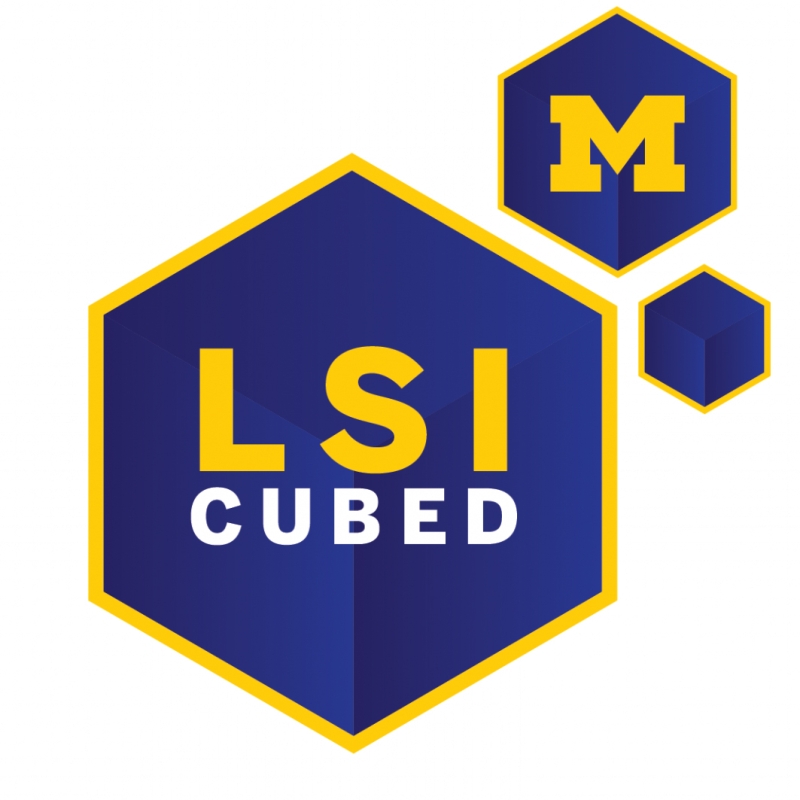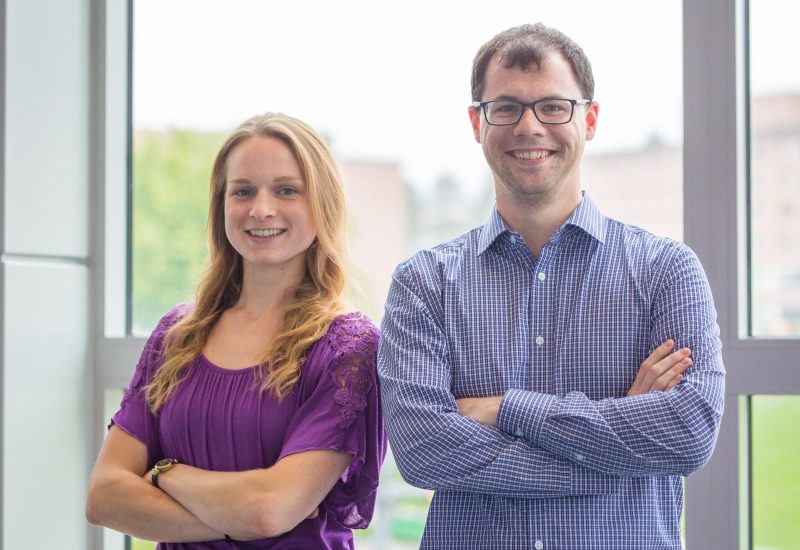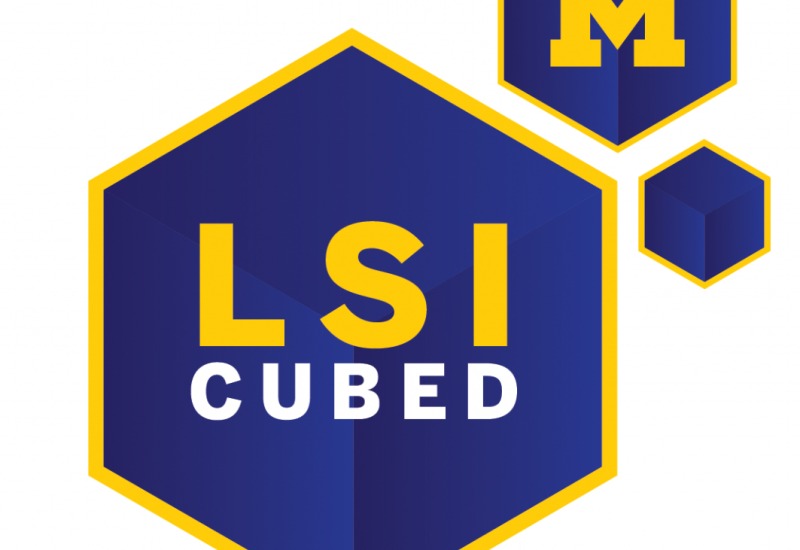LSI Cubed promotes cross-lab collaboration and provides an opportunity for LSI trainees to lead a research project by funding “cubes” of two to three researchers from at least two labs.
This donor-funded initiative engages trainees in multidisciplinary research early in their scientific careers, while providing important career-building skills such as writing proposals and designing, executing and running the budget for an independent research project.
Each year, the LSI will fund selected projects up to $10,000 for supplies and equipment to carry out the proposed research.
Teams can include two to three graduate students, postdoctoral researchers, research investigators and/or research staff, but must be led by an LSI trainee. Each applicant's faculty mentor will need to sign a Statement of Support acknowledging the applicant is applying for the award and approving their effort toward the proposed project.

LSI Cubed Projects
2024
- High-throughput, deep phenotyping of complex social behaviors (Yujia Hu, Yijie Pan and Veronica Sikora; Ye and Clowney labs)
- Identification of novel PIKfyve-interacting proteins and their role in regulating cellular mTORC1 activity (Huseyin Karaburk, Hiroko Ishii and Pilar Rivero-Rios; Inoki and Weisman labs)
- Role of NTS POMC neuronal activity on hypoxia-induced anorexia (Naima Dahir, Xingyu Li and Yanan Wu; Cone and Li labs)
- Viper-active: Snake venom as a source for bacterially-derived small molecule discovery (Matthew Holding and Katherine Lev; Ginsburg and Sherman labs)
2023
- Characterizing autophagy activity in hypothalamic neurons controlling feeding behavior (Yijun Gui and Ge Yu; Cone and Klionsky labs)
- Development of an intracellular chemogenetic system to inhibit CBP/p300 KIX (Yejun Liu, Jael Rodriguez and Jiaqi Shen; Mapp and Wang labs)
- Resolving the co-occurrence of nuclear envelope-derived exosome and DNA secretion from migrating neutrophils (Subhash Arya, Tyler Brant and Sam Collie; Mosalaganti and Parent labs)
- Structural and biochemical investigation of a novel natural product amidation domain (Estefanía Martínez Valdivia and Michael Rankin; Mapp and Smith labs)
2021
- Characterization of dynamic PKS module architecture (Tyler McCullough and Joshua Salem; Smith & Håkansson labs)
- Characterization of the role of opioids in the central cough circuit using novel genetic sensors and actuators (Noam Gannot, Lequn Geng and Kayla Kroning; Li & Wang labs)
2020
- Novel cholinergic circuitry in liver function and disease (Henry Kuang, Linkang Zhou, Alexander Knights and Shanshan Liu; Lin & Wu labs)
- Understanding the mechanism of autophagy modulation by the N terminus of Atg12 (Wayne Hawkins, Vikramjit Lahiri and Matthew Henley; Klionsky & Mapp labs)
2019
- Structural studies of autophagosome formation in yeast that will shed light on proteins integral to the core autophagy machinery (Aileen Ariosa, Elizabeth Delorme-Axford and Melody Sanders; Klionsky & Ohi labs)
- Functional imaging of the activity pattern of orexin neurons related to breathing, and examination of how it is affected by obesity (Patrick Sweeney and Xuenan Wang; Cone and Li labs)
- Investigation of the role of the FLAP–5-LO protein complex in forming a leukotriene that is essential for recruiting neutrophils to tissue damage (Clarissa Durie and Song Chen; Ohi & Parent labs)
- Protein engineering for the biocatalytic synthesis of novel natural product derivatives to target a protein-protein interaction that facilitates rapid proliferation of cells in fast-growing tumors (Julie Garlick, Clint Regan and Vikram Shende; Mapp & Sherman labs)
2018
- Structural biology studies of the polyketide synthases that make juvenimicins, an important class of antibiotics (Andrew Lowell, Kinshuk Srivastava and Meredith Skiba; Sherman & Smith labs)
- Identifying mutants that can activate the Vps34 protein in yeast, and testing the effect of these mutations on their ability to clean up the cell through autophagy (Vikramjit Lahiri, Sai Srinivas Panapakkam Giridharan and Noah Steinfeld; Klionsky & Weisman labs)
- A machine-learning approach to engineering proteins for the biocatalytic synthesis of novel epipolythiodiketopiperazine derivatives as potential anti-cancer agents (Julie Garlick, Clint Regan and Vikram Shende; Mapp & Sherman labs)
- Characterization of natural products with potential to inhibit the calmodulin-GPCR kinase 5 interaction implicated in cardiac hypertrophy (Amy Fraley and Tyler Beyett; Sherman & Smith labs)
- Identifying novel TRPA1 independent pathways to regulate thermogenesis (Dongil Kim, Jianke Gong and Elizabeth Ronan; Wu & S. Xu labs)




